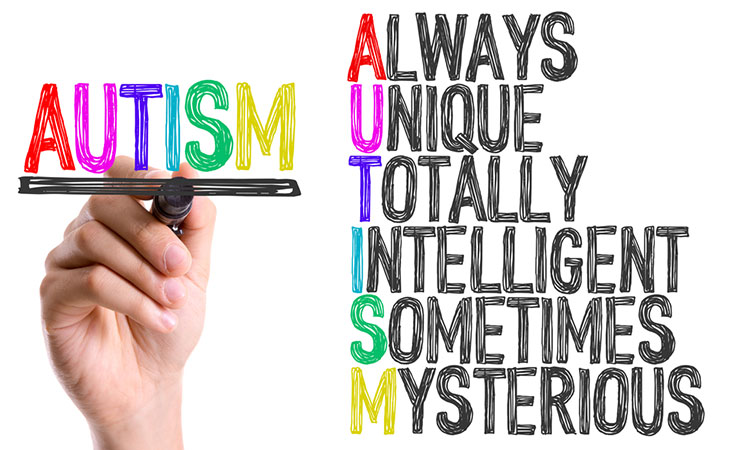

Benefits and Results of Homeopathy in Autism Spectrum Disorder
Autism is a behavioral disorder that occurs in children mostly in the first 3 years of life. This condition affects the way a child relates to his environment and his social interaction. However, intervention at an early stage and treatment can help kids with autism cope with it. Homeopathy is an extremely effective treatment for autism and has proven efficacy in treating it. This article reflects upon the scope of homeopathy treating autism.
Also Read: Is Your Child Autistic? | How to raise an autistic child - a parent’s guide
Improvement in common autism symptoms with Homeopathy
Homeopathic treatment brings upon:
- Significant improvement at the immunity level
- Significant decrease in hyperactivity & restlessness
- Moderate to mild improvement in obeying commands, eye contact and judgment.
Improvement in individual autistic symptoms with Homeopathy
Symptoms of autism vary from child to child. Homeopathy can help relieve a lot of such symptoms. With homeopathic medicines, it has been observed that there is:
- Improvement in self-rocking behavior, violent anger spells, poor attention, random laughing, disturbed sleep pattern, self-biting, eating of wall materials, control of urination & defecation and communication skills
- Improvement in eating and drinking abnormalities
- Better control of the bowel and bladder especially bedwetting decreased by 80%
- Immunological and allergic reactions reduced by 70%
- Less gestures and sensory issues (visual, touch, pain and temperature)
- Lessening of echolalia (unnecessary repetition of speech)
- Jumping, spinning, hand flapping was decreased by 83%
- Some children who were eating leaves, lipstick, and creams showed complete reversal of the habit.
Statistics show that
- 72% of cases who continued homeopathic treatment for more than six months showed significant improvement in:
- Hyperactive behavior like restlessness and tantrums
- Impaired sensory defenses
- Eye contact
- Speech.
- 60% of cases with mild autism regained speech
- 50% of cases (without significant retardation), which continued for more than two years got rehabilitated in mainstream school or slow learners' setup while others were enrolled in special school
- Obsessive acts and self-stimulations showed insignificant change in first six months and took longer to respond.
Also Read: Parental tips on how to raise autistic children
Holistic Scope of Homeopathy for Autism
Homeopathic medicines do not merely act on any one particular organ of an individual but it has much more deeper and central action on psycho-neuro- endocrinological and psycho-immunological axis. Thus, it plays distinct role in reducing or eliminating autistic features.
In autism, we come across impaired sensory defenses giving rise to severe disturbances of sensitivity. For example, some children show marked degree of hypersensitivity to noise, light, touch etc, while some children show intense inclination for hugging and touching things while others would be extremely averse to hugging and cuddling.
Homeopathy works well to correct this accentuated state of sensitivity bringing about good moderation. Homeopathic medicines also help improve fine motor skills as well as perceptual difficulties.
Behaviour modification through homeopathic medicines is an age old well documented function. These tiny pills work wonderfully to improve hyperactivity, temper tantrums, self injurious behavior or destructive behavior.
However, one has to remember that a harmonious coordination in a team of doctors, psychologist, educators, therapists and parent is important in dealing with spectrum of autism in its entire range and depth. Each discipline has its own distinct role to play. Synergy results in the best results.
In most cases order of improvement seen is as above:
- Best results are seen when we start the treatment at the earliest i.e. as soon as possible when the symptoms or signs are observed
- Improvement also depends upon the degree of autism i.e. mild, moderate, severe
Other associated conditions like epilepsy, genetic disorders etc. also influence the outcome.
Key Takeaways
- Homeopathy can help improve autism symptoms like hyperactivity, restlessness, and sensory issues.
- Many children show better control over behaviors such as self-biting, eating non-food items, and bedwetting with homeopathic treatment.
- Studies suggest that 72% of children on homeopathic treatment for over six months see improvements in speech and eye contact.
- Homeopathy works well with other therapies, like behavioral and speech therapy, to support autistic children.
- Dr Batra's® offers personalized homeopathic autism care, combining expertise and understanding of local needs in the UAE.
FAQs
How does homeopathy support treatment for Autism Spectrum Disorder (ASD)?
Why choose Dr Batra's® for autism care in Dubai?
Is homeopathy a safe treatment option for children with autism?
How does homeopathy complement other autism therapies?
What are the benefits of choosing Dr Batra's® for homeopathic autism care in the UAE?

